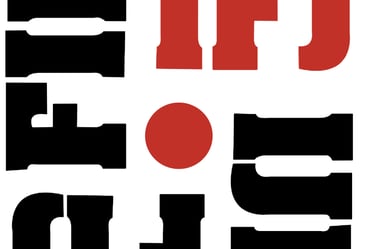Footballer Dani Alves Released on Bail After Paying £850,000


Following his release from jail, Dani Alves, the renowned footballer, is now facing a multitude of challenges as he attempts to rebuild his life and career. The recent rape conviction has undoubtedly tarnished his reputation and left a lasting impact on both his personal and professional life. With the weight of the court's orders hanging over him, Alves must now navigate a precarious path towards redemption.
Having paid a hefty bail of £850,000, Alves managed to secure his freedom, albeit temporarily. The conditions of his release demand strict compliance with court orders, leaving him with limited freedom and a constant reminder of the legal consequences he faces for his actions. Surrendering his Spanish and Brazilian passports is a symbolic gesture, symbolizing his willingness to cooperate with the authorities and adhere to the legal proceedings.
As Alves steps out into a world that is both forgiving and unforgiving, he must confront the challenges of rebuilding his reputation and regaining the trust of his fans, teammates, and sponsors. The road to redemption will undoubtedly be arduous, demanding a combination of remorse, accountability, and a genuine commitment to personal growth.
Furthermore, Alves must also grapple with the potential impact his legal troubles may have on his footballing career. Once considered one of the finest players in the world, his future now hangs in the balance. Clubs and sponsors may be hesitant to associate themselves with a player who has been convicted of such a serious crime, raising questions about his marketability and the opportunities that lie ahead.
While Alves may have paid his bail and secured temporary freedom, the journey towards true freedom, both legally and personally, is far from over. It remains to be seen how he will navigate the challenges that lie ahead and whether he will be able to rebuild his life and career in the face of such adversity.
The Background
In recent months, Dani Alves has been at the center of a highly publicized legal case. The footballer was convicted of rape and sentenced to jail time. However, he was able to secure his release by paying a substantial bail amount.
The case against Alves began when a woman came forward, accusing him of sexually assaulting her during a party at his residence. The allegations sent shockwaves through the football community, as Alves was known for his talent on the field and his philanthropic efforts off it.
As the case progressed, evidence emerged that seemed to support the woman's claims. Text messages exchanged between Alves and the woman were brought to light, revealing a flirtatious and intimate conversation. Additionally, witnesses at the party testified to seeing Alves and the woman in a compromising position.
Despite the mounting evidence against him, Alves maintained his innocence throughout the trial. His defense team argued that the encounter was consensual and that the woman's accusations were motivated by a desire for financial gain or revenge.
The trial itself was highly publicized, with media outlets from around the world closely following every development. The courtroom was packed with journalists, supporters, and curious onlookers, all eager to witness the outcome of the case.
After weeks of testimony and deliberation, the jury found Alves guilty of rape. The judge handed down a sentence of several years in prison, a decision that shocked many of Alves' fans and supporters.
However, Alves' legal team immediately appealed the verdict, citing procedural errors and inconsistencies in the evidence presented during the trial. They argued that Alves had been denied a fair and impartial hearing, and that the guilty verdict should be overturned.
While the appeal process was underway, Alves was allowed to remain free on bail. The footballer's legal team, led by a high-profile defense attorney, argued that he posed no flight risk and that he would comply with any conditions set by the court.
Ultimately, the court granted Alves bail, but the amount set was substantial. To secure his release, Alves had to pay a significant sum of money, which many speculated was a reflection of his wealth and status as a high-profile athlete.
As the case continues to make headlines, the public remains divided on Alves' guilt or innocence. Supporters argue that he is being unfairly targeted and that the evidence against him is inconclusive. Critics, on the other hand, believe that the guilty verdict was justified and that Alves should face the consequences of his actions.
As the appeal process moves forward, the football world anxiously awaits the final outcome of Alves' legal battle. The case has not only tarnished his reputation but has also raised important questions about consent, power dynamics, and the responsibility of athletes as role models.
Release on bail is a common practice in the legal system, allowing individuals who have been convicted of a crime to temporarily regain their freedom while their case is under appeal. It is important to note that bail is not a sign of innocence, but rather a legal mechanism to ensure that the defendant complies with any further court orders and does not pose a flight risk.
In the case of Dani Alves, the court set the bail amount at £850,000, a substantial sum that serves as a guarantee of his future compliance with the legal process. By paying this amount, Alves was able to secure his release from jail, albeit temporarily. This decision has sparked a debate among the public, with differing opinions on whether a convicted criminal should be allowed to walk free.
Those who argue against Alves' release on bail believe that a convicted criminal should serve their sentence without any opportunity for temporary freedom. They argue that allowing individuals like Alves to walk free undermines the justice system and sends the wrong message to society. However, it is important to remember that the right to appeal is a fundamental principle of the legal system, and individuals should be given the chance to present new evidence or challenge the validity of their conviction.
On the other hand, supporters of Alves' release on bail emphasize the presumption of innocence until proven guilty. They argue that everyone, regardless of their conviction, should have the right to appeal and have their case reviewed by a higher court. They believe that denying bail to convicted individuals would be a violation of their rights and could lead to potential miscarriages of justice.
Ultimately, the decision to grant bail to Dani Alves is a reflection of the legal system's commitment to due process and the principle of innocent until proven guilty. While it may be controversial, it is an integral part of the legal process that aims to ensure fairness and justice for all individuals involved. As Alves awaits the outcome of his appeal, the public will continue to closely follow the case, eager to see how the legal system ultimately determines his fate.
Handing in passports is a crucial step in legal cases involving high-profile individuals like Dani Alves. It serves as a preventive measure to ensure that the defendant does not have the means to flee the country and evade justice. By surrendering his Spanish and Brazilian passports, Alves is effectively cutting off his ability to travel internationally without the court's permission.
Once the passports are handed over, they are usually kept in the custody of the court or a designated authority. This ensures that Alves cannot regain possession of his passports and use them to leave the country unnoticed. The court's permission is required for any international travel, and this additional layer of scrutiny helps to monitor and control Alves' movements.
Handing in passports is not a unique requirement in legal cases. It is a well-established practice used worldwide to prevent individuals from escaping the jurisdiction and avoiding the legal consequences of their actions. In cases where there is a significant risk of flight, defendants are often required to surrender their passports as a condition of their release.
By voluntarily surrendering his passports, Alves is demonstrating his willingness to cooperate with the court and abide by its orders. This action can be seen as a gesture of good faith, showing that he has no intention of evading justice. It also highlights his commitment to staying within the jurisdiction until his case is resolved.
While surrendering passports may seem like a drastic measure, it is an essential tool in ensuring the integrity of the legal process. It helps to maintain the fairness of the proceedings and ensures that all parties involved have an equal opportunity to present their case. By restricting Alves' ability to travel internationally, the court can effectively monitor and control his movements, ensuring that he remains available for further legal proceedings.
Overall, the act of handing in passports is a significant step in legal cases involving individuals like Dani Alves. It serves as a safeguard to prevent flight and maintain the integrity of the legal process. Alves' decision to surrender his passports demonstrates his commitment to the legal proceedings and his willingness to comply with the court's orders.
Public Reaction
The release of Dani Alves on bail has sparked a range of reactions from the public. Some people argue that a convicted criminal should not be allowed to walk free, regardless of their status or fame. They believe that jail time should be served immediately after a conviction, without the possibility of bail.
On the other hand, there are those who support Alves' right to appeal and his temporary release. They argue that everyone should be presumed innocent until proven guilty, and that the appeal process is an important part of the legal system.
Additionally, there are those who question the fairness of the bail amount set for Alves. £850,000 is a significant sum of money, and some argue that it favors the wealthy and famous. They believe that the bail system should be reformed to ensure that it is not biased against those who cannot afford such high amounts.
Furthermore, the public reaction to Alves' release has also brought attention to the broader issue of inequality within the criminal justice system. Many argue that the ability to secure bail, especially at such a high amount, is a privilege reserved for the wealthy. This raises concerns about the fairness and accessibility of justice for those who are less fortunate.
Moreover, some critics point out that the bail system itself is flawed, as it allows individuals with financial means to essentially buy their freedom while those without sufficient resources remain incarcerated. They argue that this creates a two-tiered system where justice is not blind but rather influenced by wealth and privilege.
However, proponents of the current bail system argue that it serves as a necessary tool to ensure that individuals show up for their court proceedings. They contend that without the option of bail, many defendants would be more likely to flee or evade justice, leading to a breakdown in the legal system.
As the public debate surrounding Dani Alves' release on bail continues, it brings to light the complex issues surrounding the criminal justice system, including questions of fairness, access to justice, and the role of wealth and privilege. These discussions are crucial in shaping the future of the legal system and ensuring that it upholds the principles of justice for all.
The appeal process is a crucial step in the legal system that provides individuals like Dani Alves with a second chance to seek justice. It allows for a thorough examination of the original trial, ensuring that no errors or inconsistencies were made that could have potentially affected the outcome. This process serves as a safeguard against wrongful convictions and ensures that the legal system remains fair and impartial.
During the appeal, Alves' legal team will meticulously review the evidence presented in the original trial. They will scrutinize every detail, searching for any potential flaws or inaccuracies that may have influenced the verdict. This thorough examination aims to uncover any new evidence that was not previously considered or to challenge the validity of the evidence presented during the initial proceedings.
Alves' legal team will also present compelling arguments to the higher court, highlighting any legal errors or procedural mistakes that may have occurred during the trial. They will meticulously analyze the trial transcripts, cross-examine witnesses, and consult with expert witnesses to build a strong case for the appeal. Their goal is to convince the higher court that the original conviction was unjust and that Alves deserves a new trial or his conviction to be overturned.
However, it is important to note that the appeal process can be a lengthy and complex one. The higher court will carefully review all the evidence and arguments presented by both sides before making a decision. This review process can take months or even years, depending on the complexity of the case and the workload of the court.
During this time, Dani Alves will remain free on bail, anxiously awaiting the outcome of his appeal. The uncertainty of the situation can be emotionally draining and mentally exhausting, as he must continue to live with the shadow of the conviction hanging over him. Nevertheless, Alves and his legal team will remain steadfast in their pursuit of justice, hoping for a favorable outcome that will clear his name and restore his reputation.




